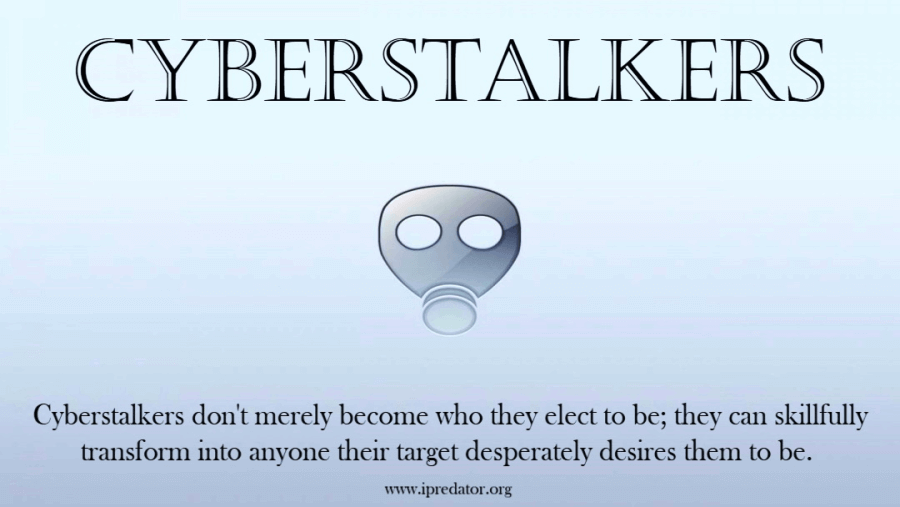Thank You
Centre for Action Against Stalking
for the
CAAS 2021 International Conference & Summit
Titled “Dynamics between the Stalker and the Victim”, I am honored to be presenting iPredator, ODDOR and Cyberstalking at the 1st International Online Conference and Summit Tuesday-Thursday April 20th-22nd 2021. Provided here is the registration link and summit itinerary.
Registration Link: https://www.actionagainststalking.org/conference
Conference and Summit Program: https://www.actionagainststalking.org/copy-of-conference
I would like to thank Ms. Ann Moulds, Dr. Waiyin Hatton & Action Against Stalking for the opportunity to present my work. To learn a little of what I will be discussing, provided are my iPredator, ODDOR, IVI and Cyberstalking definitions. Also made available to conference participants and all interested parties are my “iPredator” and “iPredator Notes” papers for direct download. Simply click on the PDF download buttons at the base of this post.
iPredator Definition
iPredator is a person, group or nation who, directly or indirectly, engages in exploitation, victimization, coercion, stalking, theft or disparagement of others using Information and Communications Technology [ICT]. iPredators are driven by deviant fantasies, desires for power and control, retribution, religious fanaticism, political reprisal, psychiatric illness, perceptual distortions, peer acceptance or personal and financial gain. iPredators can be any age or gender and are not bound by economic status, race, religion or national heritage.
iPredator is a global term used to distinguish anyone who engages in criminal, coercive, deviant or abusive behaviors using ICT. Central to the construct is the premise that Information Age criminals, deviants and the violently disturbed are psychopathological classifications new to humanity.
Whether the offender is a cyberstalker, cyber harasser, cybercriminal, online sexual predator, internet troll, cyber terrorist, cyberbully, online child pornography consumer or engaged in internet defamation or nefarious online deception, they fall within the scope of iPredator. The three criteria used to define an iPredator include:
- A self-awareness of causing harm to others, directly or indirectly, using ICT.
- The usage of ICT to obtain, exchange and deliver harmful information.
- A general understanding of Cyberstealth used to engage in criminal or deviant activities or to profile, identify, locate, stalk and engage a target.
Unlike human predators prior to the Information Age, iPredators rely upon the multitude of benefits offered by Information and Communications Technology (ICT). These assistances include exchange of information over long distances, rapidity of information exchanged and the seemingly infinite access to data available. Malevolent in intent, iPredators habitually deceive others using ICT in the abstract and artificial electronic universe known as cyberspace.
Cyberstalking
Cyberstalking is the use of Information and Communications Technology (ICT) to stalk, control, manipulate or habitually threaten a child, adult, business or group. Cyberstalking is both a tactic used by an ICT assailant and typology of pathological ICT user. Cyberstalking tactics include false accusations, threats of harm, habitual monitoring, surveillance, implied threats, identity theft, damage to property and gathering information to manipulate and control their target.
To meet the criteria of cyberstalking, the information and tactics used must involve a credible or implied physical and psychological threat to the target. An example of physical threat involves bodily harm to the target or their loved ones using ICT. Examples of psychological threats involve using disparagement, humiliation, dis-information dissemination and environmental damage to the target’s reputation, credibility or financial status if the target does not acquiesce to the cyber stalker’s demands.
Offline Distress Dictates Online Response
(ODDOR)
Offline Distress Dictates Online Response (ODDOR) is a sub-tenet of iPredator, which posits that offline psychological functioning directly influences one’s online interactions. Whether someone is an online assailant, cyber-attack target or both, ODDOR does not discriminate. ODDOR postulates that temporary and long-standing psychological states can significantly taint an online user’s behaviors and interpretations. Perceptually isolated, ignorance of the existence of ODDOR and experiencing atypical affective and cognitive states increases the probability of being targeted by an online assailant.
In addition to being at a greater risk of being cyber attacked, ODDOR influences an online user to partake in destructive and self-destructive online activities. If a person is self-aware and reasonably healthy, their levels of ODDOR are less likely to become problematic. Just as self-awareness acts as a buffer between mental health and dysfunction, the same holds true for ODDOR.
iPredator Victim Intuition (IVI)
iPredator Victim Intuition (IVI) is an iPredator construct sub-tenet reserved for seasoned online assailants. IVI is an iPredator’s aptitude to sense a target’s online vulnerabilities, weaknesses and technological limitations increasing their cyber-attack success with minimal ramifications. Some iPredators develop an intuition for knowing what online user will be a successful target through practice, learning and observation of other iPredators.
Practice, trial and error, understanding of human behavior and knowledge of internet safety and information security practices is where an iPredator’s IVI acumen thrives. An iPredator’s IVI falls on a continuum of dexterity whereby there are iPredators who are IVI skilled and iPredators who are novices. Whether the iPredator is advanced or a novice in their IVI acumen, the fact that they engage in developing an IVI makes them a potentially dangerous ICT user.
iPredator Concept Page & PDF Paper Download
iPredator Notes Page & PDF Paper Download
Michael Nuccitelli, Psy.D.
Michael Nuccitelli, Psy.D. is a NYS licensed psychologist, cyberpsychology researcher and online safety educator. In 2009, Dr. Nuccitelli finalized his dark side of cyberspace concept called iPredator. Since 2010, he has advised those seeking information about cyberbullying, cyberstalking, cybercriminal minds, internet addiction and his Dark Psychology concept. By day Dr. Nuccitelli is a practicing psychologist, clinical supervisor and owner of MN Psychological Services, PLLC. After work and on the weekends, he volunteers helping online users who have been cyber-attacked. Dr. Nuccitelli’s is always available to interested parties and the media at no cost. This website and everything created by Dr. Nuccitelli is educational, free and public domain.






